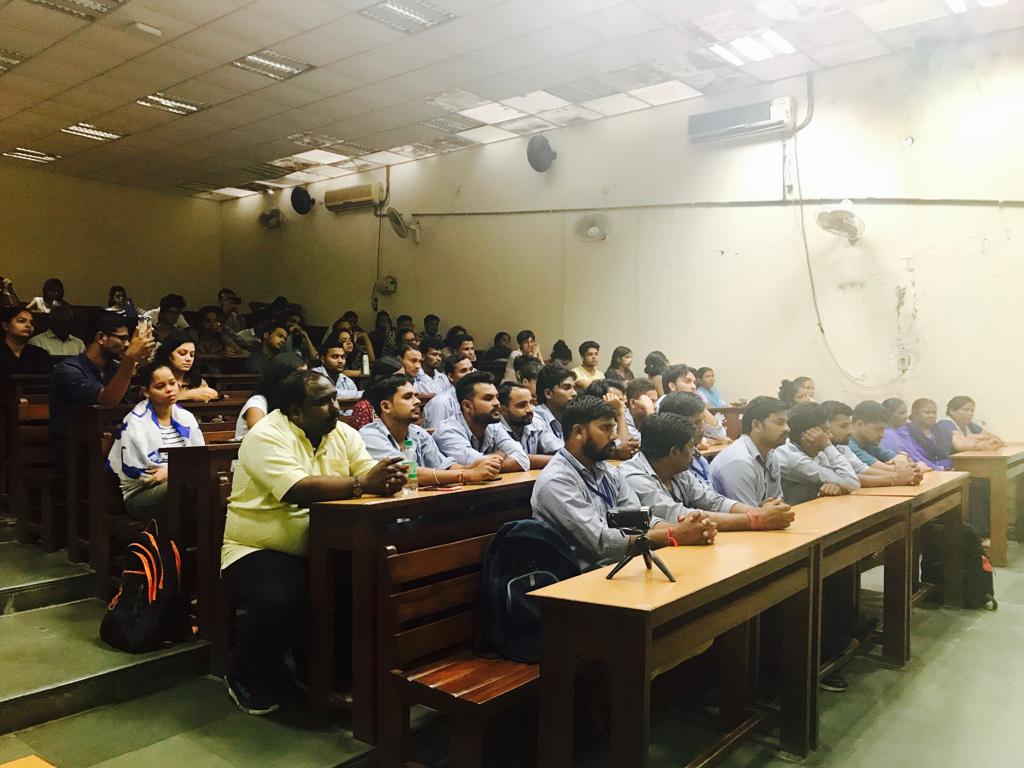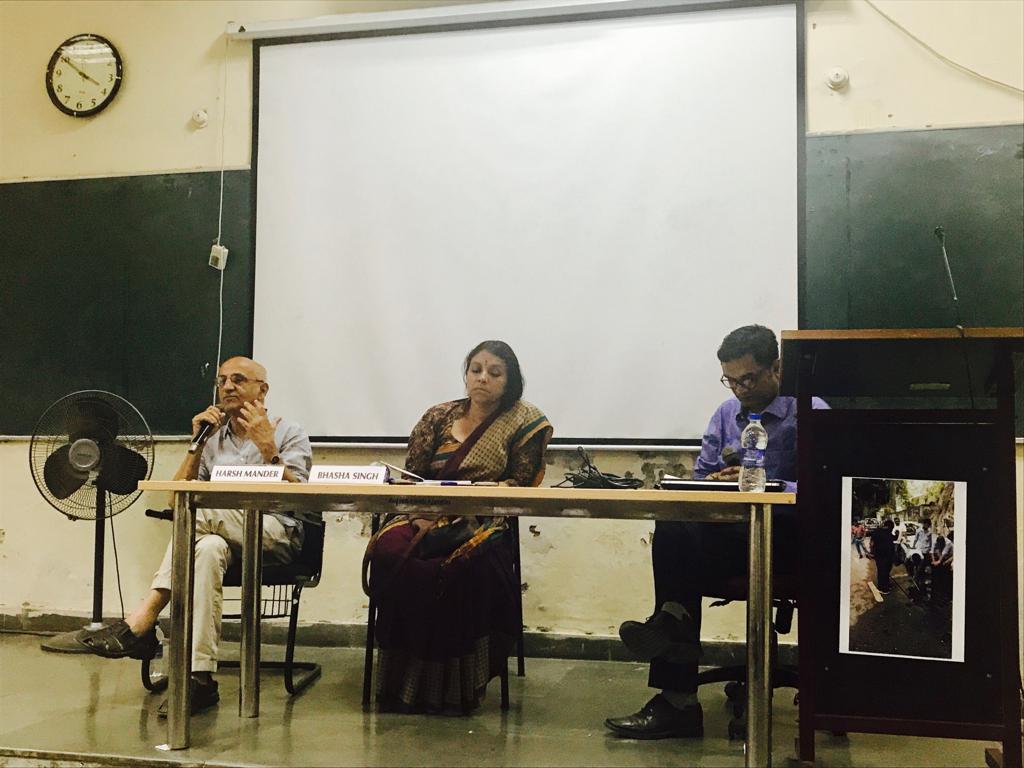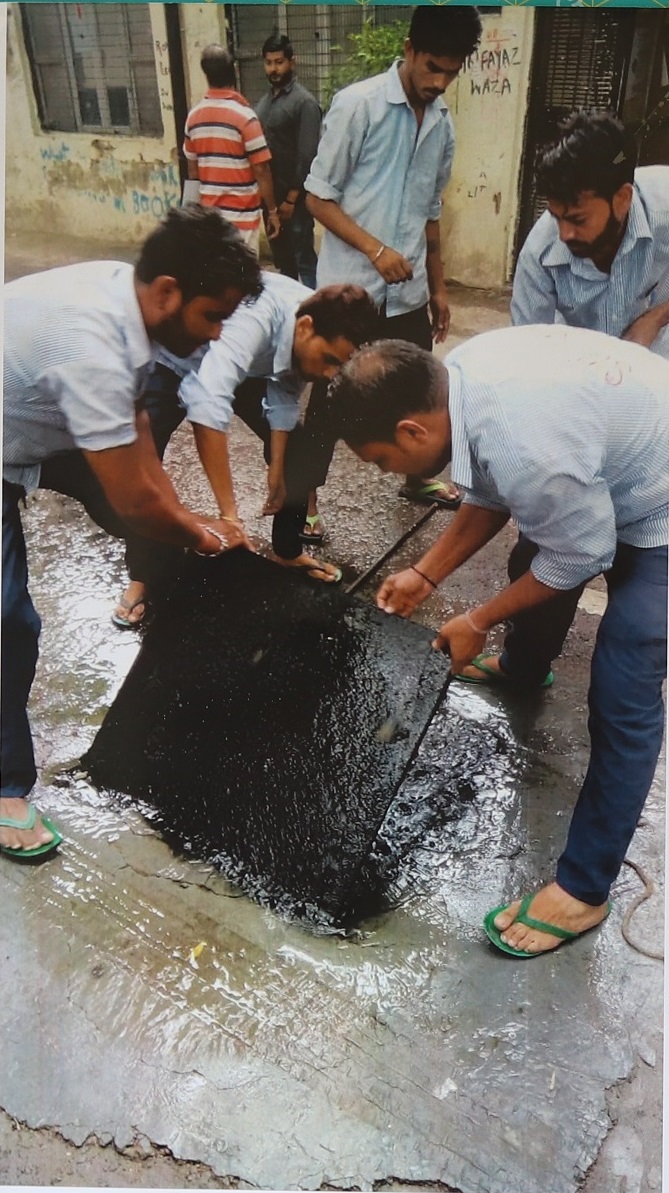In the light of the deaths of manual scavengers, the Indian Writers’ Forum organised a screening of Newsclick’s A Battle for Freedom: Wilson and the Safai Karamchari Andolan.

Manual Scavenging was outlawed in 1993. The amended Act of 2013 prohibits the cleaning of sewers and septic tanks without protective equipment. This Act also seeks rehabilitation of manual scavengers by providing them with alternative employment. Yet most governments today deny even the existence of the profession in toto.
In September 2018 eleven manual scavengers were reported from across the country. These include five deaths which took place on a single day in the National Capital Region of Delhi. These deaths resulted in massive protests led by the Safai Karamchari Andolan.
In the light of the deaths of manual scavengers, the Indian Writers’ Forum organised a screening of Newsclick’s A Battle for Freedom: Wilson and the Safai Karamchari Andolan at Ambedkar University, New Delhi. Held on October 03, a day after Gandhi Jayanti, marking four years of the much-hyped Swachh Bharat Abhiyan, the screening was followed by a discussion with activists and writers Harsh Mander and Bhasha Singh.

The students of Ambedkar University ensured that all sanitation workers were offered the choice to join them for the film screening. As a result, the programme witnessed a large audience, comprising of both students and sanitation workers who participated by sharing their personal experiences with each other.
What transpired in the discussion was a sharp reminder of the grave reality overshadowing the lives of the safai karamcharis in India. During the post-screening discussion, crucial questions were raised, both by the panellists as well as the sanitation workers. One of the sanitation workers’ spokesperson recounted the everyday experiences of the workers at Ambedkar University and their encounters with the administration in great detail while acknowledging his fears of using a public platform to voice his concerns – individual and collective.
The spokesperson said that the ambivalent term “housekeeping” was often misused and no prior clarity about the nature of the work was told to them. The workers were expected to pick up malba (human excreta) and clean sewers and despite it having no mention in their contracts. He added that these activities comprised a major part of the work they were expected to do. Moreover, some workers had to travel almost seventy kilometres every day for work, which meant having to leave their houses as early as four in the morning to reach the campus on time.

They were often asked to sit separately from the rest of the people on campus. “After cleaning the toilets and classrooms from 6:30 in the morning, you do not want us to occupy your space because we smell? So, where should we sit if not in the same space that we cleaned?” he contested. He also narrated about a certain occasion, when they were not even given chairs to sit on, it was only after they expressed dissent were they provided with chairs.
Such incidents display an unabashed casteist mindset. Most people are unaware that manual scavenging is not a legend, but a regular practice, and an occupation all over the country. Under the Swachh Bharat Abhiyan, the union government is on a rampage to build toilets in villages. Attempts are made to declare them officially as open defecation free. In such a scenario, asks Bhasha Singh, “Who will be the ones cleaning these five crore toilets that the government is getting constructed all over the country? If the idea is to clean the society, we will first have to change the way we think,” she argued.
The spokesperson also recounted an incident when a worker met with an accident. A nail had pierced through his foot, and when they rushed to get him help, they were ordered to resume work immediately and not waste any more time. This incident displayed such administrative apathy that the spokesperson, along with others, decided to raise their voices against such working conditions. He said, “It was humiliating and made me think that if we all have to die we might as well die with dignity.”
Does the university, space which nurtures all kinds of voices accommodate voices of its own contract workers? – one is moved to ask.
Untouchability still remains a cruel reality for them and it comes from the “nature” of their job which is a result of the caste they were born into. It is not a matter they have a choice in. In another instance, a security guard asked the workers to take the food packets distributed by the administration on Independence Day, only after everyone else had eaten, as some people had a problem with the safai karamcharis taking the food in the same line as the others. “Independence for whom, and from whom?” they seemed to ask.
The sanitation workers are employed by the university on a contractual basis and receive no benefits from their employers. Narrating a personal experience, the spokesperson said that some time ago when he was hurt, he had incurred an expense of four lakh rupees from the hospital where he was being treated. Forget receiving monetary support from the university, “no one,” he remarked “from the university staff or administration had cared to even pay him a visit during his stay at the hospital. In spite of this, I am still here being the good worker that I am and I will be here tomorrow as well.”
Courtesy: Indian Cultural Forum
